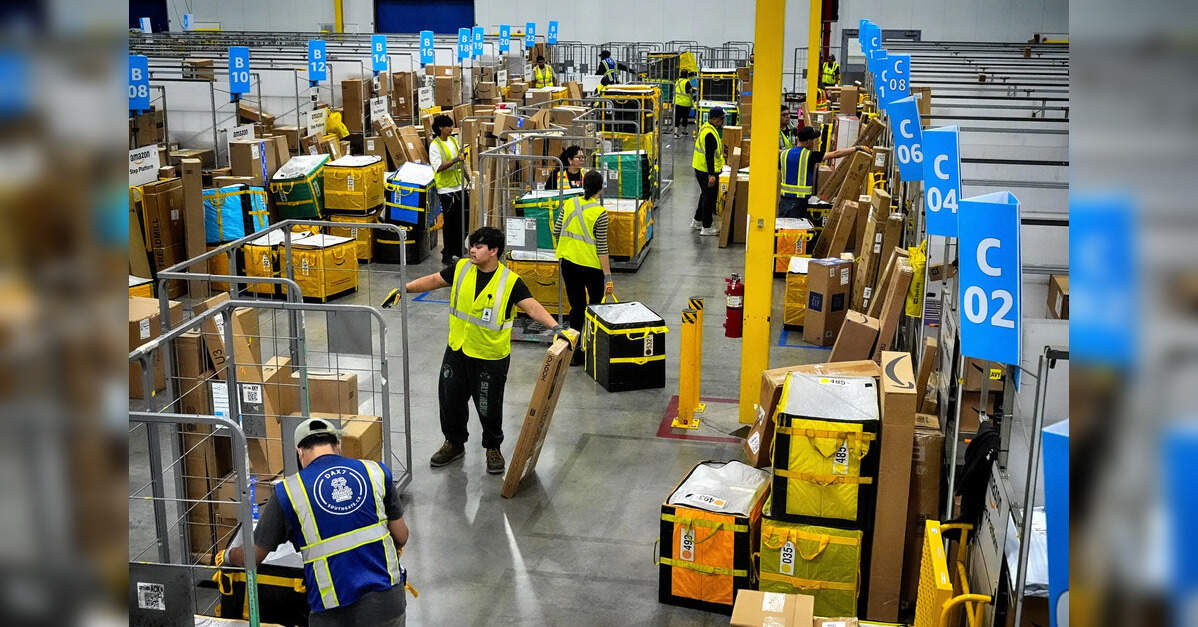Job Anxiety Has Workers Misreading Everyday Signals - Business Insider
It's the last day of Amazon's Prime Day sale, so time is running out to snag some of the best deals of the summer. The Reviews team at BI has gathered the best discounts for your home, kitchen, closet, and more — and they've tested all the items, too.
In today's big story, welcome to the age of office paranoia, where layoffs, AI, and job insecurity are terrorizing workers.
JPMorgan says retail investors will lead a stock-buying spree in the second half of 2025.
A new city is vying to steal San Francisco's Big Tech crown.
Dear Starbucks, please don't force baristas to write on cups.
But first, we need to talk.
The company snacks are worse. The office air conditioning goes out. An unexpected meeting appeared on your calendar. The signs all point toward one thing: looming layoffs.
Or not. Sometimes, things are just as mundane as they appear. It's what experts call "paranoid attribution," when employees read negative meaning into regular workplace occurrences.
It's occurring in workforces across America. It's not hard to understand why: AI is threatening to take jobs, strict RTO orders are becoming more common, and the Great Flattening is coming for middle management.
"Workers are feeling disempowered," said Michele Williams, a professor of management and entrepreneurship at the University of Iowa. "They're looking for these social cues and overinterpreting social cues because of that insecurity."
Meanwhile, the reality is that layoff rates are still low — relative to historic levels — and remain concentrated in white-collar sectors, especially at big-name companies that dominate headlines. In other words, things may not be as bad as they seem.
But the paranoia is still reshaping the workplace.
The fear isn't good for anyone, BI's Juliana Kaplan writes. When employees are anxious about their career security, they probably aren't doing their best work.
One worker that BI spoke with has completely changed her perspective on her career after getting laid off twice in two years. The first time was the day that she had arranged a return-to-office party for the workers reporting to her.
"It's really hard to go to work every day and to know that you may not have a future here no matter how hard you work," she said.
On the other hand, fear can be terribly efficient. When companies shift toward a more "hardcore" management style, they are generally banking on employees clinging to well-worn adages about becoming indispensable at work.
Employees were supposed to become hyper-focused, not hyper-concerned. Now, staffers are looking at the corporate world a little differently — and some are turning their back on it altogether.
You may also like...
Diddy's Legal Troubles & Racketeering Trial

Music mogul Sean 'Diddy' Combs was acquitted of sex trafficking and racketeering charges but convicted on transportation...
Thomas Partey Faces Rape & Sexual Assault Charges

Former Arsenal midfielder Thomas Partey has been formally charged with multiple counts of rape and sexual assault by UK ...
Nigeria Universities Changes Admission Policies

JAMB has clarified its admission policies, rectifying a student's status, reiterating the necessity of its Central Admis...
Ghana's Economic Reforms & Gold Sector Initiatives

Ghana is undertaking a comprehensive economic overhaul with President John Dramani Mahama's 24-Hour Economy and Accelera...
WAFCON 2024 African Women's Football Tournament

The 2024 Women's Africa Cup of Nations opened with thrilling matches, seeing Nigeria's Super Falcons secure a dominant 3...
Emergence & Dynamics of Nigeria's ADC Coalition

A new opposition coalition, led by the African Democratic Congress (ADC), is emerging to challenge President Bola Ahmed ...
Demise of Olubadan of Ibadanland
Oba Owolabi Olakulehin, the 43rd Olubadan of Ibadanland, has died at 90, concluding a life of distinguished service in t...
Death of Nigerian Goalkeeping Legend Peter Rufai

Nigerian football mourns the death of legendary Super Eagles goalkeeper Peter Rufai, who passed away at 61. Known as 'Do...

:max_bytes(150000):strip_icc()/slv-prime-day-primary-kitchen-deals-ea20c6a799014d73b245369e17f7221a.jpg)

:max_bytes(150000):strip_icc()/062725-kylie-jenner-jeans-social-1c61d4ebfc1f424f9abfb88c1969d8e8.jpg)